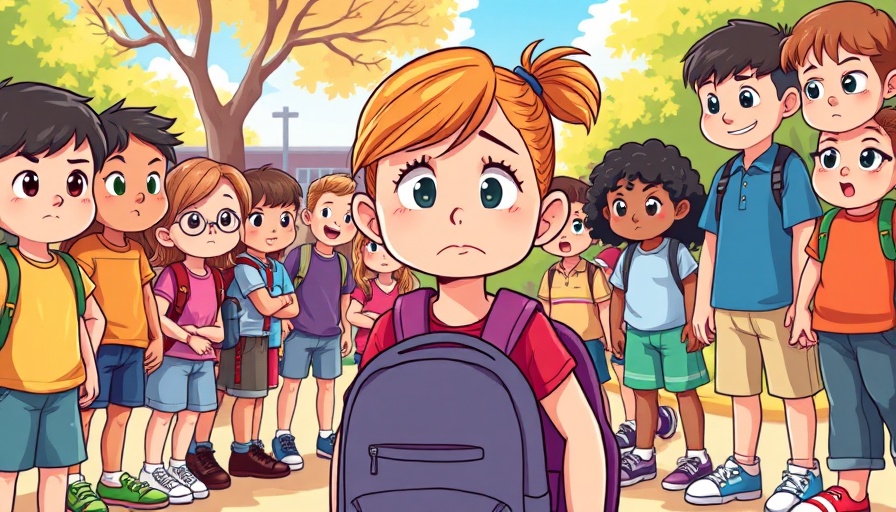
Growing Bullying Crisis: Immigrant Children Face Unprecedented Challenges
The troubling rise in bullying incidents targeting immigrant children in Texas warrants urgent attention. As reported, instances of bullying often root in racial and cultural differences, exacerbating the impacts of the political climate surrounding immigration. With over 2 million children in Texas having at least one immigrant parent, schools are tasked not only with educating these students but ensuring their emotional welfare amidst heightened fears.
The Heartbreaking Outcome of Bullying
One particularly distressing illustration of the bullying crisis involves the tragic suicide of 11-year-old Jocelynn Rojo Carranza. Reports indicate she faced harassment linked to her family's immigration status, a chilling reminder of the real-world consequences of bullying. Her mother, Marbelle Carranza, expressed her devastation, urging schools to pay closer attention to students facing similar situations. The Gainesville Independent School District's response has been criticized as insufficient, pointing to a systemic failure to protect vulnerable populations.
Effects of Cultural Stigmas in Schools
While the bullying landscape is compounded by cultural stigmas, experts assert that parental attitudes significantly influence children's behaviors. Jaime Freeny from the Center for School Behavioral Health highlights the necessity for educators to engage in proactive conversations about racial sensitivity and inclusion. Creating an environment that fosters respect can be particularly transformative, helping to counteract learned stereotypes that children might adopt from their families.
School Support Systems: A Double-Edged Sword
Many school districts have protocols for addressing bullying, yet the effectiveness of these measures is under scrutiny. Lorena Tule-Romain of Imm Schools emphasizes the importance of training for educators to identify and respond to bullying effectively. Given the ongoing crisis, schools must provide adequate resources and support systems, ensuring that students not only hear about zero-tolerance policies but also feel their safety and well-being are prioritized.
Political Climate and Its Consequences
The current political landscape has further complicated the situation for immigrant families. Fears of deportation and ICE raids have infiltrated schools and communities, affecting how children perceive their environments. Recent reports from Public News Service indicate that political uncertainty escalates anxieties among not just immigrant families but also their American-born children. As advocates call for change, the focus is on instilling policies that promote understanding and dismantle the fear that fuels bullying behaviors.
Recommendations for Change
To combat these alarming trends, action is necessary on multiple fronts. Schools should establish comprehensive support groups for students dealing with bullying, while also ensuring that their staff receives training in diversity and inclusion. Moreover, parents can play an integral role by promoting dialogues about acceptance at home, ultimately cultivating a generation that views diversity as a strength rather than a weakness.
A Call for Community Awareness and Advocacy
As Texas continues to navigate its immigration landscape, collective action is crucial. Community organizations, schools, and families must unite to advocate for clear policies against bullying and foster acceptance. By standing together, we can create a safer, more inclusive environment for all children, paving the way for a brighter future.
If you or someone you know is dealing with bullying, don’t hesitate to reach out for help. The National Suicide Prevention Lifeline is available at 1-800-273-8255. By fostering a supportive community and encouraging open dialogue about immigration and bullying, we can make it clear that no child should face bullying alone.
 Add Element
Add Element  Add Row
Add Row 



 Add Row
Add Row  Add
Add 


Write A Comment